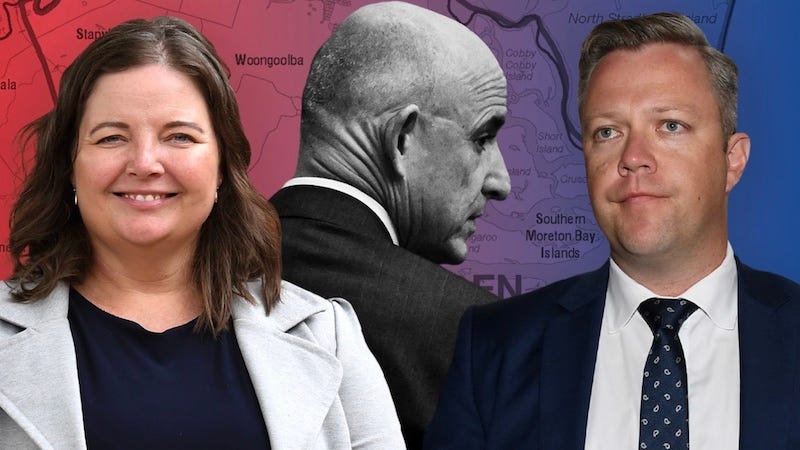The Fadden byelection has concluded and in the world of politics, electoral events always hold some significance, even if it may not amount to much in the grand scheme of things. This particular byelection, held in Queenland’s Gold Coast, is known for its conservative tendencies and its lack of major swings from one election to the next.
Unsurprisingly, the Liberal–National Party emerged victorious, with their new candidate, Cameron Caldwell, securing a comfortable 13-point margin, and the win is being touted by News Corporation as a massive success for Peter Dutton and a significant blow to the Labor Party, signaling the end of Anthony Albanese’s honeymoon period as leader.
However, upon closer examination, the results appear to be nothing more than business as usual. The byelection outcome can be considered a typical stock-standard result with little excitement or change. While the Daily Telegraph has at least reported the election accurately on this occasion – a win to the Liberal–National Party – leaders facing political challenges often attempt to amplify any victory to appear more substantial than it actually is.
In this case, this win may help Dutton retain his position for a little longer, allowing potential challengers like Sussan Ley or Angus Taylor more time to prepare their challenge. Conversely, Dutton will have an opportunity to stabilise his leadership within the Liberal Party, assuming the party continues to support his efforts.
This situation brings to mind the 2020 Eden–Monaro byelection, where the Labor Party narrowly won, against expectations. However, the Daily Telegraph sensationalised the results, claiming it was a crushing blow for Anthony Albanese, even though the party he led had just won. Such tactics are not uncommon for the conservative media, as they usually try to spin victories for the Liberal Party – and even their losses – to their advantage.
The victory for the Labor Party in Eden–Monaro stabilised Albanese’s leadership, enabled him to lay a platform to start engaging the electorate against an unpopular Prime Minister, Scott Morrison, which ultimately led to victory at the 2022 federal election. While Dutton’s win may not guarantee a similar trajectory for him, it serves as a reminder that even a small victory can pave the way for greater success in the future.
There have been some question about whether the Fadden byelection result can provide any insights into the upcoming federal election. Upon analysis, however, there appears to be very little that can be inferred from it. The Australian Greens experienced a 4 per cent drop in their vote, and the Legalise Cannabis Party – in their first election appearance – managed to secure 7 per cent of the vote. Aside from these minor shifts, the overall change in voter sentiment was relatively limited, with a 2.8 per cent swing against the government.
However, byelection results often reflect the mood of the electorate on a specific day and in a particular region, making them somewhat unrepresentative of the broader Australian community. Moreover, with the next federal election not scheduled until 2025, there is ample time for political landscapes to evolve and issues to surface, rendering the byelection results less impactful in the long run.
A similar sentiment can be applied to the seat of Aston, where the Liberal Party suffered a dramatic loss in April this year. While this outcome was indicative of the political climate at the time, it cannot be seen as an absolute predictor of the future political landscape. Politics is a fluid and ever-changing arena, and events between now and the next federal election can significantly alter the political dynamics.
The Fadden byelection might have declared a winner for the Liberal–National Party, but its significance remains modest in the larger political context. A victory is a victory, no matter how small, and it can potentially lead to greater achievements down the line. Nevertheless, using byelection results as a crystal ball for future elections is a speculative exercise at best, as the political climate can undergo considerable shifts over time. As the nation looks ahead to the 2025 federal election, much is yet to unfold in the dynamic world of Australian politics.





